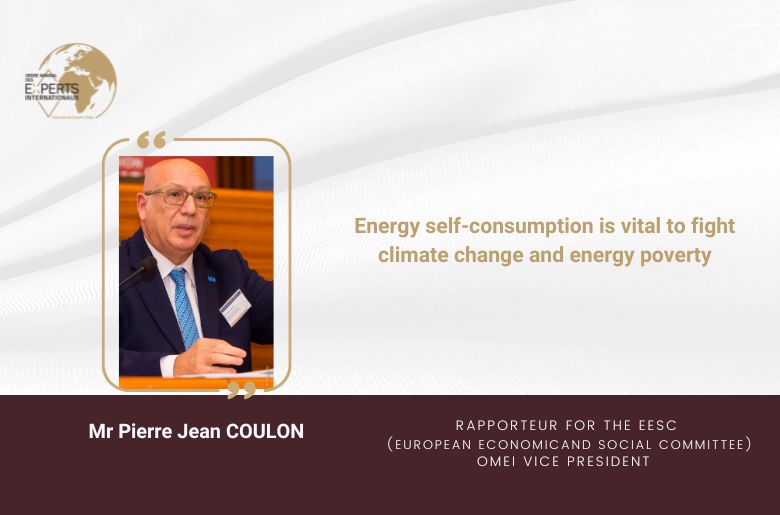Pierre Jean Coulon, Rapporteur for the EESC opinion on Individual and collective energy self-consumption as a factor in the fight for the green and energy transition, and for economic and social balance, argues that energy self-consumption is vital to fight climate change and energy poverty
Self-consumption, whether individual or collective, has been one of the few, if not the only, way to respond to several energy issues, including greening production by using wind, solar and even hydro renewable energy and the scourge of energy poverty, which impacts more than 80 million Europeans.
The Intergovernmental Panel on Climate Change (IPCC) and the International Energy Agency (IEA) regularly call for the mass roll-out of all available decarbonised technologies, including renewable energy.
The IPCC’s sixth report indicates once again that climate change is accelerating and intensifying. Not a month, or even a week, goes by where we don’t see it. In accordance with this urgency, the IEA recommends massively deploying all available clean energy technologies, such as renewable energy.
Clean energy with a local dimension
These technologies, unlike fossil fuel or nuclear energy, have an inherently local dimension. They are connected to the geographical areas they are based and can be installed close to where energy is consumed. As a result, their development is leading to a revival of self- consumption of electricity, in other words, direct consumption of locally produced energy.
The energy proposed and implemented is mainly composed of photovoltaic solar and wind power but also small-scale hydropower. In contrast, a local variation of future green hydrogen sectors could soon be implemented.
For the past few years, European and, in particular, national legislation, especially in some countries, has supported self-consumption, whether individual, mainly using photovoltaic panels on roofs, or collective including photovoltaic or wind farms installed by energy communities, local authorities, cooperatives, etc.
European and national legislation support developing individual or collective energy self-consumption to accelerate the production, distribution and consumption of this clean and less expensive energy, thus potentially impacting both accessibility and prices – and therefore the fight against energy poverty – as well as the fight against climate change.
Energy self-consumption: Citizens as masters of their energy environment
Moreover, the EESC’s opinion adopted in October 2023 calls for every citizen to be genuinely placed at the heart of these trends and for both public authorities and local and regional authorities to support the developers of such projects.
Pooling and “smoothing” prices in a spirit of solidarity would make it possible to provide practical responses to the energy poverty caused chiefly by the high costs faced by many households. With this in mind, non-profit initiatives should be encouraged.
Smart meters should be rolled out across the European Union to manage these processes efficiently. This process must not be carried out under pressure, nor should it be imposed. It should take place through education, enabling consumers to take real responsibility for making the best use of their data.
In this way, citizens can become genuine stakeholders in their own energy environment.

